Beauty as Pointer: An Islamic Theory of Aesthetics
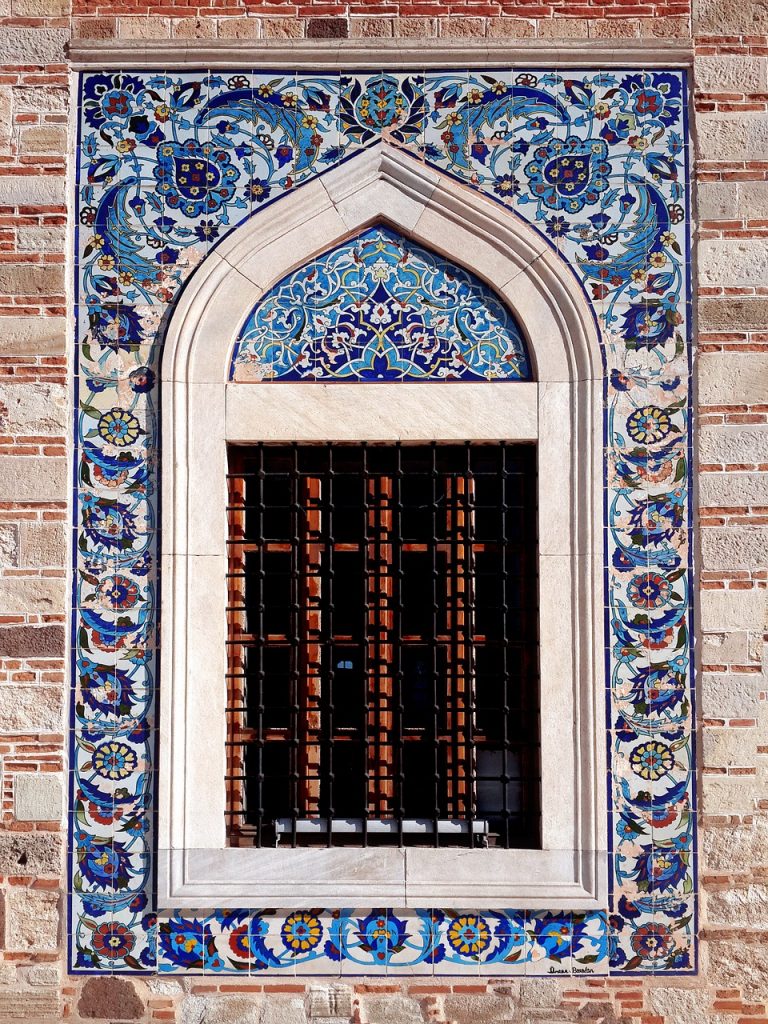
There is something special about beauty, as has been recognized by philosophers in the recent centuries. If someone says the above piece of architecture is ugly, I would judge them either liars or somehow morally corrupt.
When we appreciate beauty, we feel morally uplifted. This is very strange. Why should appreciating some design have any relationship with how I feel about myself?
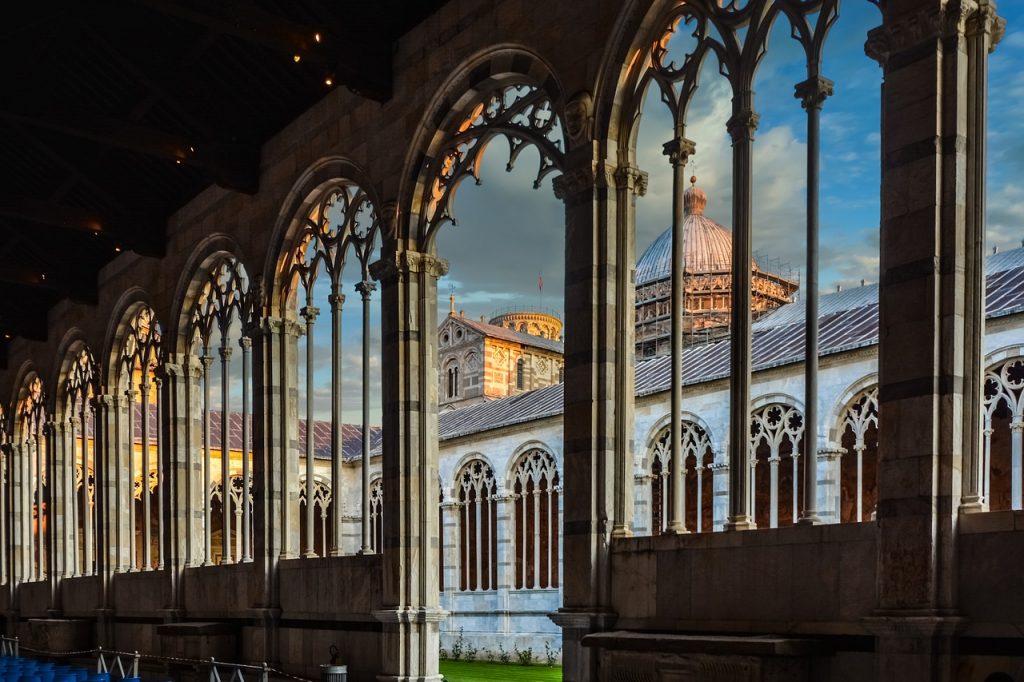
This moral sense of beauty is wonderfully expressed by Roger Scruton in the following passage:
Our need for beauty is not something that we could lack and still be fulfilled as people. It is a need arising from our metaphysical condition, as free individuals, seeking our place in a shared and public world. We can wander through this world, alienated, resentful, full of suspicion and distrust. Or we can find our home here, coming to rest in harmony with others and with ourselves. The experience of beauty guides us along this second path: it tells us that we are at home in the world, that the world is already ordered in our perceptions as a place fit for the lives of beings like us. But—and this is again one of the messages of the early modernists—beings like us become at home in the world only by acknowledging our ‘fallen’ condition, as Eliot acknowledged it in The Waste Land. Hence the experience of beauty also points us beyond this world, to a ‘kingdom of ends’ in which our immortal longings and our desire for perfection are finally answered. As Plato and Kant both saw, therefore, the feeling for beauty is proximate to the religious frame of mind, arising from a humble sense of living with imperfections, while aspiring towards the highest unity with the transcendental.1
My point in this post is to take those thoughts slightly further using my Islamic education, especially al-Ghazali’s simulation theory.
A beautiful Gothic cathedral is a “glitch in the matrix” that creates a state of awe in your mind best expressed in the Quranic verse:
Our Lord, You did not create this in vain, glory to You!2
The state of mind tells us that while from inside the universe things may appear meaningless and random, if we could only look beyond, we would see that they have an architecture and a meaning; history has a director; God exists and watches on.
Appreciating beauty leads to a certain state of the mind. The way that taking a drug creates a certain mental state, appreciating beauty too does something to the mind, creating a special mental state. This state of mind produced feels meaningful because it points beyond the here and now, beyond the confines of space and time, beyond the individual human, in short, beyond the universe itself.
In Islam, we use the word ayah (“a sign that points toward something”) to refer to anything and everything that points to God. It might be possible to explain all beauty using the ayah concept alone (although I am not perfectly sure):
A beautiful thing is anything that points the human mind to the transcendent, i.e. to God.
The similarity between mystical experience and the experience of beauty is well-established. That, according to my theory, is because they are the same thing. The state of awe that beauty forces upon us makes us feel infinitely small, makes us feel connected to something larger than ourselves and larger than the universe, and most importantly, makes us feel judged by an all-seeing subject, an eye that knows us better than anyone else and is ready to accept us.
All that is beautiful makes you experience God’s presence, and all that makes you experience God’s presence is beautiful.
That is where the morally uplifting nature of beauty comes from. When faced with beauty, just as we are casually judging it, we suddenly become aware of an eye that looks back and judges us in return. Something suddenly goes click inside our psyche, we are transported beyond our circumstances, and we are offered a chance to become better than we are. We are on the edge of a great revelation but we do not know what is being offered or who is offering it.

For me appreciating the Quran creates the same psychological experience as appreciating beauty, natural or man-made.
This Quran, in pointing to God, is a universe that speaks. And this universe, in pointing to God, is a silent Quran.3

Many Western hippies have visited Fez, Morocco in their seeking of meaning in life. While Morocco has much beauty to offer, meaning that it helps travelers come face-to-face with the all-seeing subject that looks back at us, judges us and offers us forgiveness as we try to judge beauty, the same experience can be had for much cheaper at home by looking at the architecture of most churches and their surrounding scenery.
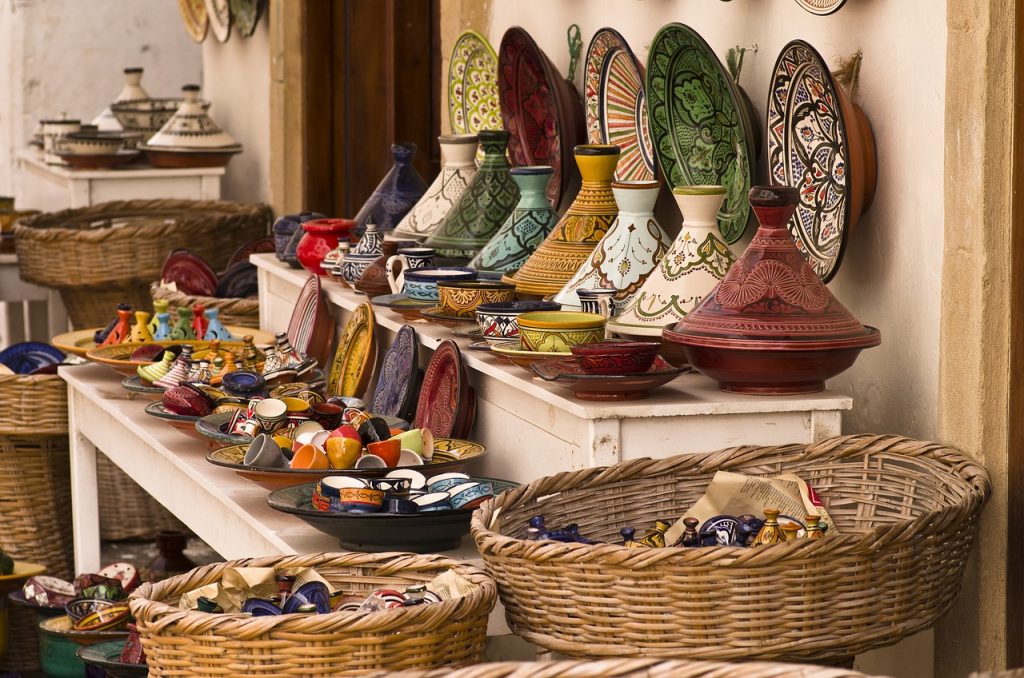
Beautiful art, whether Islamic or Christian, points to God. The experience of beauty, whether in Fez or in the English countryside, is one and the same. Both point to God and make moral demands on us, promising us salvation in return for piety.

The problem with Fez and Turkey’s many tourist attractions is that beauty is devoid of moral teaching, therefore while a lover of beauty is elevated by it and motivated to seek God, if they do not go through with this seeking (through religion or at least through the effort of direct communion with God without religion), they end up as moral failures who never reach what they seek. They admire God through beauty but are too cowardly to talk to Him face-to-face.
I have met some of these unfortunate seekers who never become finders. The fact that you can experience the moral uplift of beauty means that you are capable of contemplating God’s face and communicating with Him. But there is a next step you have to take, which is to seek moral guidance. You can experience God, but Your God can speak, so why don’t you listen to what He has to say?
Most mysticism ends in narcissism. Rumi’s poetry, Morocco’s beauty and Gothic architecture all lift us up into the stratosphere like a thousand tons of rocket fuel, but if we are content with this experience, if we seek the experience itself without bothering to listen to God, then our mysticism and spirituality becomes self-worship. We appreciate art or chant the name of God and enjoy the uplift that comes with it, but the moment God starts speaking to us we shun Him and run away, as if saying O God, give us the good feeling of being close to You, but do not make demands. You are lovely, beautiful, amazing, but stay where I put you.
The narcissistic mystic does not chase God, he chases the feeling of what it is like to be close to God. The one who chases God is eager to listen to Him, while the narcissistic mystic feels inconvenienced by His voice.
I was delighted to find out that C. S. Lewis’s experience of beauty was very much similar to mine, as described in the following excerpt from his letters:
To me it seems that a great many different emotions are united in the perception of beauty: it may turn out to be not a simple thing but a result of unions. For one thing nearly all beautiful sights are to me chiefly important as reminders of other beautiful sights: without memory it would be a poor affair. The process presumably has a beginning but once going it grows like a snowball. Could it be that joy remembered (‘Which now is sad because it has been sweet’) is a necessary element in Beauty? There is too, I think, a purely sensuous element: that such and such notes or tints (in themselves–not in their combinations) just happen to satisfy our nerves of hearing & sight–as certain foods satisfy those of tastes. This would be rather a condition of beauty, perhaps, than an element in it. One thing is plain, that the statements continually made about Beauty’s being pure contemplation, stirring no impulse, being the antithesis of the practical or energizing side of us, are wrong. On the contrary beauty seems to me to be always an invitation of some sort and usually an invitation to we don’t know what. A wood seen as ‘picturesque’ by a fool (who’d like a frame round it) may be purely contemplated: seen as ‘beautiful’ it seems rather to say ‘come into me’.
Ugliness
If beauty is that which points to God, ugliness is that which points away from Him. Beautiful architecture “traces the contours of God’s face” so to speak, helping us know what it feels like to be near Him even though we cannot see Him. Ugly architecture, on the other hand, often present us with faceless edifices that point to nothing beyond themselves, almost claiming that God does not exist and they are all that there is:

There is nothing to relate to as a human in the above building. It is an alien, impenetrable thing that might be an alien organism capable of wiping humanity out for all that we know. Beautiful things help us come face-to-face with God and offer us salvation. Ugly things offer us nothing and tell us we are not needed. Ugly architecture offers us cruel and vacant faces, telling us life is meaningless and that there is nothing beyond. Like those dismal Soviet apartment blocks, they remind us of the hopelessness and meaninglessness of existence without God. They can be interesting to look at as technological marvels, as the Walt Disney Concert Hall in Los Angeles below, but they are as morally uplifting as a washing machine (although the curves and reflections take out a bit of the inhumanity in it).

And as a cure for the horror of experiencing looking at the above building, here is something beautiful and humane, a building that seems to whisper to us about God, almost as if it is an angel who points to God and offers us everything we could desire if we choose to be morally upright:

Religious propaganda
An important clarification has to be made here. By saying that beauty is all that points to God and that all that points to God is beautiful, I am not referring to religious propaganda, which is often ugly.
A Muslim-made billboard that quotes a verse of the Quran and talks to Christians about how Islam is better for them is not going to create any mystical experience in the hearts of the Christians who view it, because they know there is a human will behind the billboard that cannot be automatically trusted. The billboard might use a beautiful verse and a beautiful design, but the attitude behind the object makes it fall flat. Propaganda-makers pretend to possess the whole truth and refuse to acknowledge their doubts and their human weaknesses. Propaganda tries to change the course of history, it is an expression of the desire for a group of humans to make another group of humans do their bidding (I am not saying this is always bad, it can be done with good intentions, but the point is that it is not beautiful; it is not morally uplifting).
Unlike propaganda, beauty has no human will behind it and does not claim to be perfect. It does not matter who funded the above building and for what purpose. It stands on its own and humbly points to God, without pompously thinking that it knows what your beliefs should be, what you should do with your life or how history should go. It merely helps you have an experience of God while leaving it up to you to discover the truth on your own.
There is a certain class of religious art that does make truth-claims but that is not propaganda because it is aimed at members of the religious community itself; it does not seek to change them but only to reaffirm their faith and worldview. Such art is experienced by us as beautiful provided that we are members of that community because the attitude behind it no longer matters since we share the same attitude as its creators. It does not pompously claim to know the truth or try to change your way of life. It uses beautiful imagery to re-create mystical experiences you have already had in the past. The unsavory ingredient of attitude and politics is not present, so the artwork can be appreciated for itself.

Above, what might be experienced as a threatening cultural incursion by a Christian if they were to see it hung as a poster on some wall in their city is experienced by a Muslim as an apolitical reminder of many beautiful-mystical things: Ramadan, the peacefulness of small Middle Eastern towns in the desert, the Prophet’s migration to Medina PBUH. For a Muslim it points to God in numerous ways. For a Christian, if they were to see it hung in the wrong place (on a church’s wall!) it would be a direct, political attack on their way of life and independence of conscience. A beautiful thing in the wrong context can send all the wrong messages.
Porn is destroying my life, I’m not able to control the urges
Parents will not let him marry his chosen
Mysticism without Sufism: A Guide to Tahajjud, Islam’s Meditation Practice
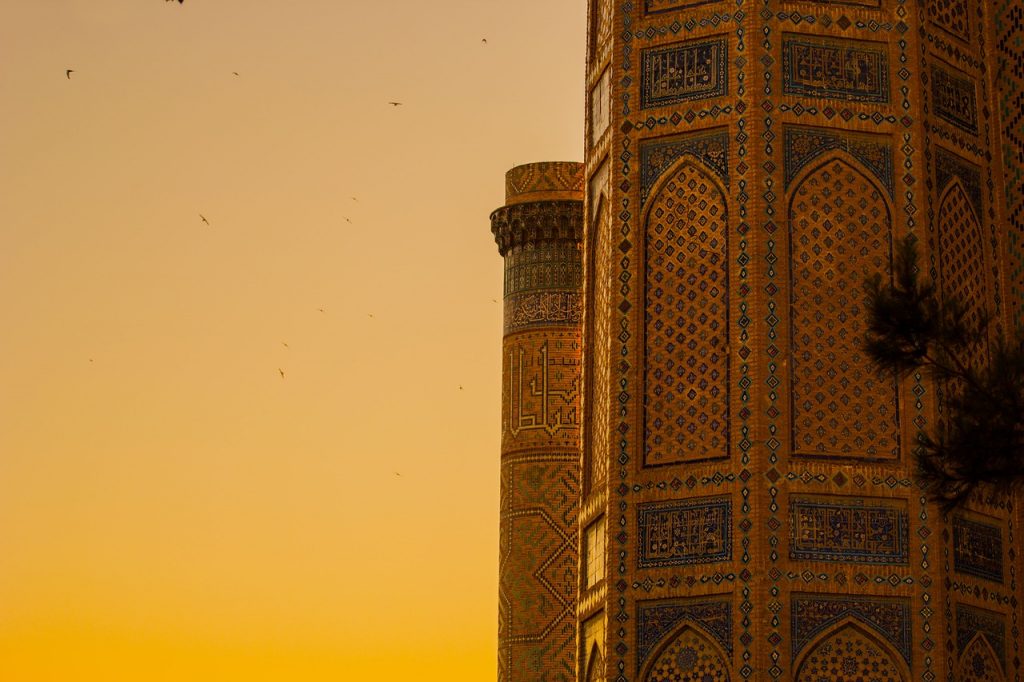
Samarkand
What does mainstream Islam offer to someone who wants a deep, meaningful and permanent connection with God? When it comes to Islamic mysticism, Sufism is often treated as its main and perhaps even only outlet. But the truth is that it is quite possible to have deep, mystical practice as a Muslim without going through Sufism. While Sufism’s organized and communal nature makes it deeply beneficial and meaningful to some people, it does not fit my temperament and way of thinking.
But in a different sense I am a Sufi. The teachings of Ibn al-Jawzi and Ibn al-Qayyim regarding developing a close relationship with God have always deeply touched me, and these are teachings derived from the lives and sayings of many early Muslim ascetics who are now considered Sufis (despite having little to do with today’s organized Sufism). Like those ascetics, I do desire a close relationship with God, as close as is humanly possible. Different people enjoy different forms of worship. For some, communal forms of worship are the most uplifting. For me, the worship I enjoy the most is reading (or listening to) the Quran. The problem, however, is that it is not easy to integrate Quran-reading into one’s daily life. It requires a great deal of willpower to arrange a specific time bracket in which you read the Quran for 30 minutes or 60 minutes every day. It can be done, and sometimes I have been able to keep it up for a week or two, but something always happens that wrecks my routine and suddenly I realize that weeks have passed by without reading any Quran.
What I have realized is that a certain physical practice is needed to integrate the Quran with my daily life. Sitting down on a couch to read the Quran every day cannot be done for any length of time (except perhaps for a very small minority of people). If you think theoretically it should be possible to do it, I challenge you to try it, and you are practically guaranteed to stop after a few days. The reason is that we humans are not disembodied intellects. We have a flesh and blood part that has its own desires, its own habits and routines, its own nature that gets in the way of the intellect. While intellectually we may desire that we should read the Quran every day for a certain amount of time, in the physical reality of human life, this desire alone is not sufficient. There is a missing ingredient; we need something to subdue the body to make it come along for the ride, every day.
As I discovered, Islam’s formal worship, the ṣalāh, is exactly what is needed to make both body and mind comply with routine, daily Quran reading. You cannot keep up daily Quran reading on the couch for any length of time, but you can keep up Quran reading indefinitely once you integrate it with the ṣalāh. Eventually I realized that the Islamic practice of tahajjud, the nightly voluntary prayer, is practically designed with these concerns in mind; it enables us to maintain daily Quran reading/listening indefinitely. Like the various rituals of Sufism that are designed to bring the seeker closer to God, tahajjud is the great Islamic mystical ritual that enables us to always remain close to God, to renew our relationship with Him daily, to get our sins forgiven (as in the Catholic confession), and to re-orient ourselves away from the worldly life’s pull and stress and toward the far simpler and blessed realm of walking with God through life.
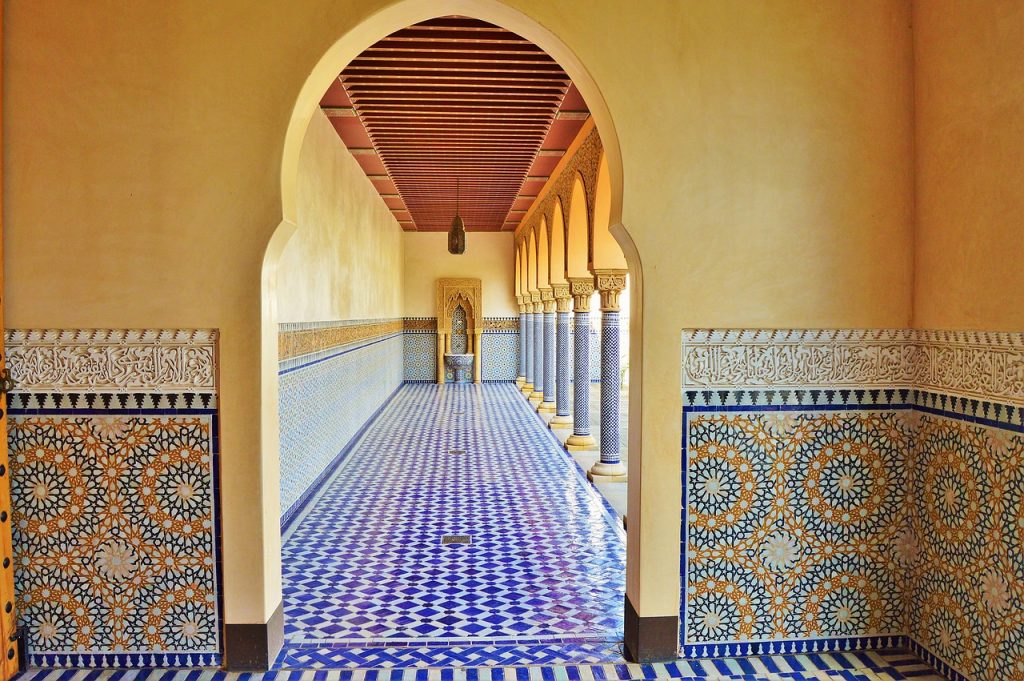
Tahajjud for the Modern World
Sūrat al-Muzzammil (chapter 73 of the Quran), our Prophet PBUH is commanded to stay up half the night, more or less, in worship that involves reciting the Quran. This is known as qiyām al-layl (“staying up or standing at night”) and tahajjud (literally “to give up sleep”, “to keep a vigil”). Linguistically the two terms have the same meaning, but some scholars choose to differentiate between them, reserving the word tahajjud for interrupting one’s sleep to pray, while considering qiyām al-layl to refer to praying without going to sleep at all.
The two words can be used interchangeably, however, since there is no compelling evidence in the Quran or the Sunnah to show us that the two forms of worship are distinct forms of worship. The first opinion on the meaning of tahajjud that the scholar al-Mawardi (d. 1058 CE) mentions in his commentary on the Quran is that it refers to any voluntary prayers offered at night with or without going to sleep first (his commentary on verse 17:79, at volume 3, p. 264 of the Dar al-Kutub version of his tafsir).
The tahajjud commanded in chapter 73 is generally understood, as by the Mālikī scholar Ibn al-ʿArabī (d. 1148 CE) in his Aḥkām al-Qurʾān, to be mainly the recitation of the Quran during the ṣalāh. The Quran is central to tahajjud, but one can also perform dhikr (repeating certain phrases in praise of God) and duʿāʾ (supplication) between its units.
A modern Muslim reading Sūrat al-Muzzammil may see in it a prescription for permanent sleep deprivation. We have work lives that would be unmanageable if we were to stay up half of the night in prayer. And if you work in an intellectually demanding field (such as computer programming or academic research), your work performance will seriously suffer if you do not get the necessary eight or so hours of undisturbed sleep. The last verse of Sūrat al-Muzzammil, which says “recite as much of the Quran as is easy for you…”, is understood to have replaced the earlier commandment of spending half, more or less, of the night in worship.
Unfortunately for many of us “recite as much of the Quran as is easy for you…” completely overshadows the earlier part of the sūra, so that we think it acceptable to ignore tahajjud unless we really feel like doing it, such as during Ramadan.
I believe that any Muslim who desires a close connection with God should take tahajjud very seriously and should try to follow all of chapter 73, as much as is possible, rather than ignoring it as most of us do. While our modern lives do not permit us to randomly stay up at night without suffering negative consequences the next day, we can integrate tahajjud into our daily routine by spending half or so of our nightly free time to perform it. If the ʿishāʾ prayer is at 9 PM and you go to bed at 11 PM, you have two hours of nightly free time in which you can perform tahajjud. Half of that free time is one hour. I believe that any fair-minded reading of chapter 73 should make a Muslim feel very strongly pushed to spend that hour in tahajjud.
There is something special about tahajjud, as the Quran tells us:
And perform tahajjud during parts of the night, as an extra worship, so that your Lord may raise you to a praiseworthy position.1
The phrase “praiseworthy position” is used only once in the Quran, in the above verse. I have searched in the Quran for the best ways of worshiping and pleasing God, and I have not found anything else described in a similar way. God promises the believers rewards for their good deeds throughout the Quran, deeds like performing the obligatory prayers and paying zakat. But there is no good deed, available to almost every Muslim every day, that is praised like tahajjud. The verse above tells us that those who pray tahajjud will be raised by God to a special status, beyond the status of His ordinary believers (provided, of course, that one’s relationship with God is not marred by sinful activities). The above verse is generally considered to be directed specifically to the Prophet Muhammad PBUH, but there is no reason why acting according to it will not get other believers similar rewards. The reason this verse in the Quran is because we are supposed to take it as an example to follow.
The verse above can be said to be offering to make a trade with us: Do tahajjud, God will raise your status to a praiseworthy position.
Zen Buddhists have meditation as their special mystical practice. Sufis have various forms of dhikr. Catholics have rosaries. Mainstream Muslims have tahajjud, this is the special part of our practice that we can use to connect with God and spend long hours in His presence. Tahajjud is how we comply with God’s command when he says:
And for part of the night, prostrate yourself to Him, and glorify Him long into the night.2
Think about it. Who is this command for if not for us who read the Quran and believe in it? Why should it be so easy for us to think that this command does not apply to us personally? By thinking it does not apply to us, we are telling God that we do seek that “praiseworthy status” that He promises us if we perform tahajjud (note that, technically, verse 76:26 is not a binding command but a strong recommendation, i.e. I am not claiming that 76:26 establishes a new obligatory prayer, but that, for a person who wishes to be the best believer they can be, it is almost a command, it cannot be ignored).
How to Perform Tahajjud
Tahajjud is performed in units of two rakʿāt, like the morning prayer. The number of times these units of two should be repeated is not agreed upon. Some recommend eight, others twenty, others thirty six. This is one of those areas of fiqh upon which endless argument is possible. The best opinion I have seen is that any number is permissible, starting from as few as two rakʿāt and going up to any number one can get up to.
There is another type of ṣalāh known as witr that is recommended to be performed after tahajjud. This prayer is performed in odd numbers and can be made up of just one rakʿa.3
Daytime Tahajjud
Since according to Ibn Abbas a Muslim can perform extra prayers at any time of day or night except when the sun is rising or setting, a person who does not have the time or energy to perform tahajjud at night can perform a similar act of worship during the daytime. This is not tahajjud but similar spiritual benefits can be expected from it.
Integrating the Quran with Tahajjud
The most important point of tahajjud for me, as mentioned, is that it allows me to read the Quran consistently as part of my daily routine. There a number of different ways of integrating Quran reading with tahajjud:
Reading Quran after Every Taslīma
In this method, every time you say the salām after praying the two rakʿāt, you would pick up a book of Quran and read a certain amount, let’s say two pages. Then you get up to pray another two rakʿāt. Then when you are done with that you sit down again and read some more Quran. Then get up and pray some more. And so on until an hour or more passes and you are ready to go to bed. Instead of reading it, you could listen to the Quran (perhaps using a smartphone app and headphones). This is what I do since, due to my eye sensitivity at night, I cannot use my eyes to read at that time. If I am especially tired or have pain, I pray, then sit back or lie down to listen to 10 minutes of Quran, then get up to pray two more rakʿāt, then sit or lie down again, and so on.
If you do not speak Arabic, you can use a book of Quran that has both the Arabic and a translation and use this as an opportunity to improve your Arabic.
Reading Quran Inside the Prayer
In this method, you would recite or read a the Quran once you are done with reciting al-Fātiḥa during every rakʿa. A person who has memorized the Quran would recite it from memory, while a person who has not can read it from a book, holding it while standing in prayer. Reciting the Quran in a non-Arabic language during the prayer is not permitted by the majority of scholars, therefore it should be avoided.
Integrating Dua (Supplication) with Tahajjud
The period of tahajjud is also a great time for dua (prayer or supplication). I always perform some dua during the prostrations of the prayer, but beyond that, sometimes after finishing the two rakʿāt, I sit for a few minutes to perform dua before moving on to listening to more Quran. I do not do this after every rakʿāt, usually I do it in one of the later ones in the night. My favorite prayers are the prayers mentioned in the Quran; praying for forgiveness, for guidance, for increases in knowledge and for having a wholesome life and afterlife.
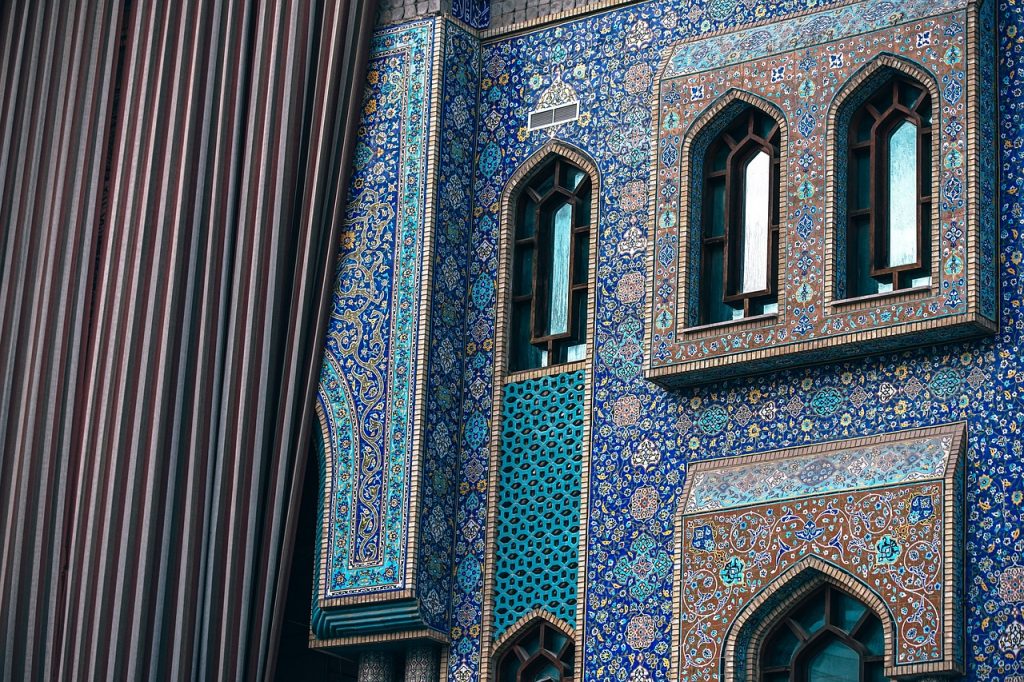
Contemplating the Face of God
What is the point of reading the same book so many times in the course of the year when you could instead be doing something more “productive”, such as reading a new book or learning something? That is an intellectual’s question. The point is not intellectual benefit (although I believe there will be much intellectual benefit), the point is to spend an hour or more every day standing in the presence of God, listening to His words. What better way to connect with God?
Other meditative practices often involve speaking to God, asking of Him, or calling His name. Tahajjud, on the other hand, changes the direction of the communication from human-to-God to God-to-human during the Quran recitation, while there is human-to-God communication during the prostrations, in which we ask of Him and pray to Him and praise Him. Tahajjud is two-way communication between the human and God, and this two-way nature of it is a great cure for our inherent narcissism. When trying to perform any mystical practice our egos have this desire to make it all about me, me, me! Satan comes between us and God and wants to make us focus on chasing a spiritual “high” in which we feel connected with something transcendent without facing up to the moral demands that the transcendent makes of us. By listening to God rather than just talking and talking at Him, we are forced to quiet our minds down and truly listen to thr transcendent. The Quran, as many Christian converts to Islam have said, is a scary book in that it does not take any nonsense from the human. It looks deep inside you and sees every one of your faults and weaknesses and exposes them to you. There is no hiding from the eyes of the God of the Quran. He sees everything, He offers us forgiveness, but He requires that we be morally upright in return.
What the Quran absolutely does not accept of us is to be spiritual hippies who hold themselves to low standards by the supposed virtue of wanting to connect with the infinite. In the Quran, the Infinite talks back at you and tells you that He is not buying any of your nonsense. You are only as good as the effort and sacrifice you put into serving Him. Just because you feel “spiritual” does not mean anything to Him, how you feel changes from hour to hour and day to day. What matters to Him is your virtue, your uprightness, your truthfulness to yourself and to Him.
The point of tahajjud and the Quran we recite in it is for us to remain on the Straight Path consistently. Just a few days away from the Quran is sufficient for all kinds of laziness to grow within us; we start to hold ourselves to lower standards, we start to think that we are better people than we really are, our thankfulness for the blessings we have evaporates, we stop seeking God’s forgiveness with heartfelt sincerity because we start to feel good in ourselves as if we are sinless. We start to think that our blessings will last forever, forgetting just how easy it is to lose everything we have. Practicing tahajjud daily helps us remain mindful of our blessings and our reliance on God.
And then there is another benefit, which is the simple fact of standing mindfully in God’s presence. It is the most meaningful experience of our lives to connect with our Creator, and through listening to the sound of His words and worshiping Him standing and sitting, we stretch out our arms towards Him, striving to be with Him. And this striving places us in a different relationship with everyone and everything around us. By being with God, the Constant, the Never-Changing, we acquire a firm foothold in a world that constantly changes and that never lives up to our expectations. The cares and concerns of this world are lifted from our shoulders, to be replaced with nothing but longing and striving for Him and nothing besides Him. Our attachment to the worldly life is weakened, our greed and ambition is checked, so that we end up realizing that pleasing God and obeying Him are more important than anything this world can offer. We become the type of people who can never justify evil for a supposed greater good, because God is our only striving, everything else is ephemeral and secondary. We try to see the world the way He might see it, and act in the world the way He wishes us to act, as His servants and agents on earth, rather than as independent, evil-doing creatures following our own desires and running amok.

Trading with God
The Quran uses the metaphor of trade in a number of places to describe the human relationship with God:
Those who recite the Book of God, and perform the prayer, and spend of what We have provided for them, secretly and publicly, expect a trade that will not fail.4
And among the people is he who sells himself seeking God’s approval. God is kind towards the servants.5
It is said by some mystics, such as Augustine of Hippo and Rābiʿa, that the true mystic should seek God for His own sake alone, neither seeking His rewards nor fearing His punishments. But the Quran does not support that kind of thinking:
And do not corrupt on earth after its reformation, and pray to Him with fear and desire. God’s mercy is close to the doers of good.6
So We answered him, and gave him John. And We cured his wife for him. They used to vie in doing righteous deeds, and used to call on Us in desire and fear, and they used to humble themselves to Us.7
Their sides shun their beds, as they pray to their Lord, out of fear and desire; and from Our provisions to them, they give.8
Above, the Quran describes the appropriate state of the human in the presence of God as awe of His greatness and desire (for His forgiveness, mercy and rewards). I believe that love is something that naturally develops when we feel connected with someone or with God, and I think it a rather wasted effort to try to get beyond fear and desire in order to serve God out of love alone. Desire, fear, and love, are all ways of relating to God. It would be rather unnatural for a person to have a close relationship with God but to only serve Him out of greed for His rewards and fear of His punishments, without any love existing. I doubt that such a human can even exist. Love is a natural byproduct of relating to God through awe and desire.
To think that loving God for His own sake without fear and desire is to make an unfounded assumption about God; it is to think that God appreciates love more than fear and desire. God wants us to fear Him and desire of Him just as He wants us to love Him. He demands all of these modes of relating to Him, because all of these affirm His attributes. It is a rather wasted effort to try to shut down certain parts of our human nature (fear and desire) in preference to other parts that we have arbitrarily decided as superior (love). The balanced way, the Quranic way (which I have found to always provide the balanced approach to every form of extremism and deviance), is to relate to God in appreciation of all of His attributes, and that means to fear Him, to desire of Him, to take refuge in Him and love Him. It can in fact be argued that it is a dereliction of duty to only love God and refuse to fear Him and desire of Him.
One day when I felt really down, as if everything I had ever done had been a failure, feeling stuck in my situation and unable to progress, this thought came to me:
The worship you do is how you pay for God's services to you. If what you have been getting is lowly, maybe what you have been paying has been lowly.
Hearing that thought, everything seemed to start to make sense and I started reading the Quran in a new way. I then ran into this verse:
Remember Me and I will remember you...9
And I realized the thought that had come to me was simply the above verse rephrased. If we want God to remember us, we have to remember Him! If we want God to give us special treatment, we have to give Him special treatment. If we want to have blessed and successful lives, we have to look at ourselves and ask: What payments are we making to God for these things?
I realized that I am willing to spend hours doing work I do not like just to get money. What a great insult to God that I am not willing to spend even a single hour a day working for Him. If I truly have faith in God, then I should be willing to spend an extra hour a day worshiping Him no matter how unproductive it feels. It is, in a very small way, a sacrifice, a payment. I pay God an hour of my labor, He pays me back. How I feel about it is irrelevant, what matters is that I should sacrifice an hour (or more) of my day every day solely for God. Not because it makes me feel good, not because I learn things during it, but because God deserves to be worshiped, because throwing away an hour of my day for God’s sake alone is a way of thanking Him for His blessings and paying Him for future blessings in this life and the next. It is similar to the way the ancient Israelites used to slaughter some of their livestock then set fire to it, letting its meat “go to waste” in the fire, a sacrifice meant for God alone that they themselves did not benefit from.
And it is through tahajjud that I make that sacrifice. I do not always feel inclined to spend an hour of my evening praying and listening to the Quran. On some days I just do not feel spiritually motivated and the verses I listen to do not touch my heart. On such days what motivates me to continue is the idea of the sacrifice. Even if I do not get anything from the tahajjud, the fact that I was willing to throw away one hour of my life for God’s sake has a very important meaning, and I trust in His ability to appreciate it and reward it.
Avoidance of Sin
One of the most important benefits of tahajjud is that if I spend an hour or more of the previous night in tahajjud, today the idea of even the most minor sin becomes unthinkable. The effects of having been in God’s presence the night before linger into the present day, making it feel like a great betrayal to do anything that might possibly displease God. It is not that my “willpower” for avoiding sin is strengthened. Avoiding sin no longer requires any willpower. It becomes an automatic response, the way one avoids poison. The attractions of sinful things no longer “register” in the mind. Enjoying something sinful feels like working to demolish something I spent an hour last night trying to build, it feels as irrational as trying to destroy anything else you have worked hard to build.

Worship versus Activism
One of Satan’s main methods for making us avoid worship is his telling us that we should instead be doing something productive for God’s sake. Instead of spending an hour or more going through a book we have gone through a dozen times before, we could be learning something new, or helping people, or working to earn money so that we can give it away in charity, or working to help Islam or humanity in some way.
The problem with that thinking is that it assumes God needs favors from us. He does not. What He wants from us is piety, perfection of character and worship before any other good deeds. There is a minimum amount of daily worship necessary to keep us on the straight path. Every day we stray away from this path, because the worldly life and its attachments are constantly pushing in various directions and away from God. A Muslim activist who neglects worship in the name of activism, despite their good intentions, can slowly become corrupt and misguided in their eagerness to achieve worldly success. We see this in certain Islamist politicians who use questionable and unethical means in order to supposedly support Islam and Muslims, or in Muslim writers and journalists using biased arguments to promote Islam. God has zero need for that type of action.
Unfortunately losing our away is the easiest thing in this world if we do not hold tight to God’s guidance and remembrance. There are so many people who have fallen into sinful and scandalous things while doing religious work because their focus on their work and eagerness for success made them neglect God. We need to seek balance, and that means spending sufficient time with God daily to purify our hearts, correct our mistakes and renew our dedication to Him.
An easy way of determining whether you have been doing sufficient worship or not is to see how easy it is for you to engage in extremely minor sins. If you are a man and you run into an advertisement in the street that portrays a half-naked woman, do you wait to admire it? Is it difficult to look away from it? Does it feel like a loss or wasted opportunity to not admire it? If any of these are true, then you have not been doing sufficient worship. If you are a woman, you can come up with a different test that is more relevant to your daily experience.
Before you try to fix the world, you have to fix yourself. If you do not bother to develop and maintain a close relationship with God, then neither God nor the world have any need for your favors. God can create a million people like you in an instant, and He can solve all of the world’s problems in an instant if He wanted. What He wants from us is to strive to perfect ourselves then to go out in the world and be His agents for good. If we try to serve Him while our hearts are still corrupt and sinful, we will actually harm His cause. People will see our weaknesses and insincerity and will know that we do not have a good relationship with God.
A father who refuses to approve his daughter’s marriage with a person from a different culture
A postmodern critique of postmodernism
The postmodern mode of critique is to try to “read between the lines” to discover what structure of power the text is supporting. A person who reads the Bible and sees in it support for a patriarchal society might actually be “reading patriarchy into the Bible” rather than “reading patriarchy out of the Bible”. Humans are often hopeless bags of prejudice who cannot touch a thing without distorting it. Postmodern critique aims to be a perspective on the world that sees what is really going on without it being part of the world itself.
In colloquial terms, postmodernists always ask “Where is the money?” when they read a text. Who are you supporting and empowering by thinking the thoughts you think and writing the things you write?
But this perspective can be turned on postmodernism itself. What structures of power are you supporting by deconstructing texts? There are tens of thousands of individuals whose careers, salaries and social positions are largely derived from marching through culture and parroting “Where is the money?” at every juncture. This itself is a structure of power; it is a new structure of power that is fed by seeking to undo other structures of power.
The postmodern critique of the world can only be taken seriously as long as we imagine it to be a disembodied perspective on the world, observing the world while being somehow detached from it. But this is nonsense. The postmodern worldview, based on asking “Where is the money?”, is merely a new structure of power that empowers some people at the expense of others. The only person who can truly perform a postmodern critique as postmodernists think it should be done is God, someone who can look at the world detachedly while having no interest in deriving power from it. Postmodernists, being part of the world and desiring power like all humans, are merely biased and prejudiced humans (as they claim everyone is) who merely repeat the rather banal question “Where is the money?” while pretending that they are somehow immune from this question themselves; that only they have the right to ask this question.
Decolonization
The critique can be extended to the theory of decolonization, the postmodern idea that Western efforts to understand non-Western cultures and traditions are inherently flawed due to Western bias. There is a need for decolonization, for taking the narrative back from the colonizing Westerners. The problem is: based on what foundation do you decolonize? Decolonization theory is a Western invention created by a group of intellectuals who feed upon the power structure upheld by these postmodern theories. Their pretense that they are unbiased observers who are helping the rest of the world open its eyes to Western colonialism is just that, a pretense. They are merely a new breed of colonizers who have invented a new structure of power that allies them with non-Westerners. But to what end? If there is no objective truth then why should I let some rich and privileged academic tell me how to open my eyes? The rational assumption toward these people should be that they are cultural subversives who are merely attacking the present culture in their efforts to establish a new culture that gives them more power and who want to manipulate me into feeding them more power by telling me that a. I am oppressed and b. I need their help to fight the supposed oppressor.
As someone who studies Islam, I am well aware of the many biases present within Western discourses about Islam. But rather than turning this into some Illuminati nonsense about how there is a Marxian “false consciousness” that we all live in, upheld and maintained by people whose power and prestige is coveted by postmodernist cultural subversives, I see the bias as a logical byproduct of human experience. Muslim discourses about the West are every bit as ignorant and biased as Western discourses about Muslims. There is no bad guy who also happens to be a white Christian man who is holding the ropes (postmodernists want you to think that, since such a man has been the object of the envy and hatred of Western cultural subversives since at least Marx’s time).
We are all bad guys in our desire to portray people we dislike as worse than they really are and in our desire to portray people we like as better than they really are.
But the biggest bad guys are the ones who pretend that only they are outside human nature, only they are the ones who are aware of bias and try to escape it, only they have the best interests of the colonized in mind, and that all those opposed to them are evil. This pretense of angelic goodwill toward the oppressed enables them to create a new power structure that attacks every other power structure but that is itself immune from attack, because it pretends not to be a power structure.
Taking it to its conclusion
Taken to its logical conclusion, postmodernism nullifies itself. You cannot decolonize unless you have some standard to measure yourself by, but by definition you are a hopeless bag of prejudice, so every decolonizing effort is itself in support of some power structure. Unless you can prove that you are a disembodied intellect with zero desires and biases, every deconstruction and decolonizing effort you engage in is by definition an exertion of power; it is merely one power structure’s demand for power from other power structures.
Indonesia’s unlocked scientific potential?
The Scimago Journal & Country Rank is one of the things I look forward to most to seeing every year. The rankings show each country’s scientific output, a very important measure of a country’s present level of development and its speed of development. The biggest surprise in the 2017 rankings was from Indonesia, whose cited paper count jumped from 11,765 in 2016 to 18,683 in 2017:
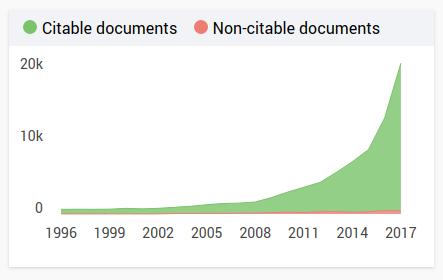
Source: Scimago Journal & Country Rank
In 2016, Indonesia was number 45 on world rankings for scientific output. Thanks to the 2017 jump, in 2017 it was number 35.
Indonesia has been a great laggard in scientific output due to its lack of development. Its papers per million capita (PPMC) is 71 compared to Malaysia’s 925. Only 16 years before 2017, in 2002, Malaysia’s PPMC was 72, comparable to Indonesia today. If Indonesia follows the same development trajectory as Malaysia (the way South Korea followed Japan), by 2032 Indonesia will be one of the world’s top scientific powerhouses. Due to Indonesia’s vastness compared to Malaysia, their development will likely take longer; however, the availability of newer and cheaper technologies may speed development up so that they end up following Malaysia’s trajectory despite their handicaps.
If Indonesia ever catches up to Malaysia’s present level of scientific output, it would be publishing 241,000 papers per year, making it the world’s third largest science hub after the US and China.
Almost all of the world’s countries are seeing a great increase in scientific output, caused by adopting Western methods of scientific research and publishing. Pakistan’s output doubled between 2010 and 2017. Egypt did similarly. Iran publishes more papers per capita than Russia. I believe we are in for some very interesting times.
Ending technological servitude: On the need for tariffs on Internet companies (and others)

Aircraft engines for airliners are some of the world’s most advanced technological products. Only a few Western nations can make them. China founded the Aero Engine Corporation of China in 2016 with $7.5 billion in funding to put an end to its reliance on Western-made engines.
In my view the most important reason why protectionism is necessary, or at least one of the most important reasons, is the prevention of technological servitude. A simple example illustrates the point: Your country cannot be a pioneer in aerospace technologies if your country is not producing airplanes. If all of your airplanes come from China, the research and development will happen in China. By buying any technological product from overseas, you are subsidizing research and development pertaining to that product in that country.
Most of the world’s countries are presently in a position of technological servitude when it comes to the products offered by internet companies like Google and Facebook. Short-sighted politicians think that it is sufficient to tax these companies in order to ensure that they partake in the local economy on a balanced basis. This is nonsense. When Google sells hundreds of millions of dollars worth of ads in the Philippines, this helps subsidize research and development in California. The technology and know-how to serve ads, to analyze data, to run data centers and networking hubs, all of these involve extremely advanced skills and tens of thousands of skilled workers, and most of them are going to be in California. The Philippines, by letting Google operate in the country without tariffs, is literally paying cash to Google to train people and develop technologies and ecosystems in California that helps it continue to maintain its technological edge over the rest of the world.
There is no way for a Filipino company to compete with Google in a free market, because Google is vastly ahead both in technology and in economies of scale. Without tariffs, the rest of the world will be stuck in a position of permanent technological servitude, the United States will always be ahead; it will have the most advanced technologies AND it will have tens of thousand of highly trained engineers with years of experience in using and developing these technologies. The United States becomes the “brain of the world” where all the interesting things happen, and every other nation has to beg it for its high-tech products, which it can use to force them to comply with its foreign policy.
In order to help create a Filipino innovation ecosystem in Internet advertising, the country will have to place tariffs on every ad Google sells in the country, making it more expensive to advertise in the country using Google’s services. This will help Filipino companies grow, hiring more people, but most importantly slowly acquiring the technological knowledge to innovate.
Instead of tariffs, the Philippines could ask Google to open engineering centers in the country. While that will certainly help in some ways, only a very small portion of Google’s skill-set will be transferred to the locals in this way, because the services Google offers in the country will still greatly rely on US infrastructure. To properly implement this, the country will have to require Google to serve the Philippines’ market entirely from inside the country, through data centers and networking and engineering hubs all inside the Philippines. But this may not be doable, because Google will have to replicate all of its major teams and technologies for the Philippines’ market (such as its search product). If this is done, it would create tremendous value for the country, helping create thousands of “Google veterans” who can go on to launch other technology companies.
It is true that tariffs cause inefficiencies and require reinventing wheels already invented in other countries. It is extremely costly to develop a local aerospace industry in a developing country. Why not just buy all of your airplanes from the US or Europe? Because that puts you in a position of permanent technological servitude. You will always have to go begging when you need new airplanes, as Iran and Turkey have to do today. No self-respecting nation should allow the US or Europe to hold this club over their heads.
Today, Iran and China are the two countries that recognize these facts better than any other country. Iran produces most of its cars locally, an industry that accounts for 10% of the country’s GDP and employs 700,000 people. It is true that this industry leads to various inefficiencies and the need to reinvent the wheel that could be avoided by importing foreign cars and helping subsidize German and US automakers. But so what? Iran’s car industry helps provide jobs for thousands of scientists and researchers in materials, electronics and robotics.
To be a technological slave or a technologically independent nation
Developing countries have two choices: either to remain technological slaves of developed economies and be treated with the usual contempt these countries have for developing nations, or use tariffs to build local technological innovation ecosystems.
What the US and Europe want from developing nations is free markets that enables them to keep these nations in a position of permanent technological servitude. This achieves four very important goals:
- Providing markets for US and European products
- Helping subsidize the jobs of hundreds of thousands of scientists and researchers in the US and Europe who will go on to build the next generation of technological products
- The ability to use the threat of withholding these products as enforcement tools for making these nations do your bidding
- Helping ensure US and European military superiority over these nations, since by lacking a powerful technological-industrial base, developing nations will be forever begging the US and Europe for military technology (and will own airplanes and satellites with US/European back-doors and vulnerabilities built in that prevents them from being a threat)
The attitude of the US and Europe toward countries like Indonesia is “We would love for you to develop, but don’t you dare develop in a way that makes you our equal!”
President Trump is really upset about China’s Made in China 2025 initiative because it is designed with the exact goal of escaping technological servitude. Until recently it was easy to dismiss China as a backward copycat that couldn’t innovate. The US and Europe incessantly made fun of China for its technological servitude, while using every tool in their toolbox to ensure that China remained that way. This is the default Western attitude toward the rest of the world. China eventually took notice and decided to hit the US/Europe where it hurts by working to be an equal.
The problem with an equal is that an equal can hurt you. The West does not want equals, it wants the whole world to be one big family with them as the big brothers holding clubs over everyone else’s heads.
China, Iran and to a lesser degree Russia seem to be making the right decisions for escaping technological servitude. It remains to be seen whether other countries can follow their example.